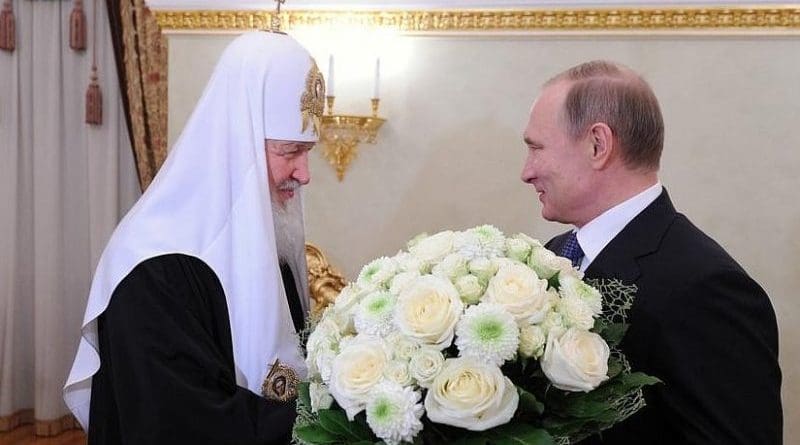Christianity: Ukraine Might Diverge Further From The Russian World – OpEd
The Russian Orthodox Church (ROC) is experiencing troubles in Ukraine. Territory once considered as uncontested land of the Russian Patriarchate may now split and become autocephalous (independent), adding yet another dimension to the challenges Russia is facing in the borderlands.
One of the major features of Russian history of the last several centuries was the battle over territories spanning from the Baltic to the Black Sea in the south, then turning eastward towards the South Caucasus.
Those are the lands for which the Russians fought the Swedes, Poles, Nazi Germans, Napoleon’s armies, Turks and the Iranians. To the Russians’ credit, they fought their geopolitical competitors successfully, stalling European advances into the arc of lands around the Russian heartland, where most of Russia’s industrial and human potential laid.
When it came to direct military confrontation, the Russians have never been fundamentally weaker than their European or Asian competitors. Deficiencies in the organization of the Russian military machine always existed, alongside a lack of modern military capabilities, but those problems were alleviated by Russian geography, large landmass, and difficult to penetrate and poor road infrastructure.
Like its earlier versions, the modern Russian military does not fundamentally lag behind its western competitors. The gap historically has been so small that neither Russia nor any of the European powers was totally dominant on the continent for an extended period.
Therefore, it is at times baffling to hear that nowadays the Russians are afraid of NATO expansion near the Russian borders. True, it would be difficult for any major player to accept rival armies near its own borders and Russia is no exception, but in the Russian mindset, surely NATO expansion near Russian frontiers is no different from what previous invasions of European commanders were?
How serious a problem the NATO troops constitute for Moscow is largely doubtful. NATO troops are already in the Baltics, and Turkey is a member of the Alliance. Considering modern military technologies and Russian abilities to defend the country, it is surprising to see how much emphasis Moscow is putting on military aspects, while crucial developments in the borderlands take place in the economic and cultural realms.
I have written often on how Russia is losing its grip on its borderlands primarily in the economic realm. For centuries, western economic reach into Russian borderlands was meagre and, as said above, Russian rulers faced only a military threat which they repelled successfully. In the last 20-30 years though, Western powers have been successful in expanding their economic reach. The European Union (EU) is a powerful entity as it has already attached the former Soviet protectorates in eastern Europe and all the three Baltic states. Moreover, the EU is active in Ukraine, Moldova and the South Caucasus to the level that much of these countries’ trade is now associated with the West.
Beyond economics, the changing geopolitical landscape is also being tilted in favor of the West on the local level. Elites in Ukraine and Georgia are being redirected to the West through economic and political incentives. Youngsters, when facing the choice of studying abroad, predominantly head to western universities and upon return to their native countries, go on to occupy key governmental positions.
Even in the spiritual realm where the Russian Orthodox Church (ROC) was predominant throughout centuries, claiming its right to unite Orthodox Christians over large expanses of the Eurasian landmass, it is now experiencing troubles in Ukraine. The latter’s Church was canonically under the ROC’s jurisdiction, but ever since the Ukraine conflict in 2014, Kyiv has been successful in its efforts to distance itself from the Russian Church. Ukrainians claim that the transfer of the Kyivan Metropolitan See in the late 17th century to Moscow was unlawful.
The meeting held on August 31 between Russian Patriarch Kirill and Ecumenical Patriarch Bartholomew signaled that the Ukrainian Church is likely to gain autocephaly (independence).
If this scenario plays out, then it will be yet another indication how Russian influence may be diminishing over its borderlands. Religious developments in Ukraine go hand-in-hand with geopolitics between Russia and Ukraine.
*Emil Avdaliani writes on developments in South Caucasus region and wider former Soviet space for local and international websites.
This article was published by Georgia Today.

